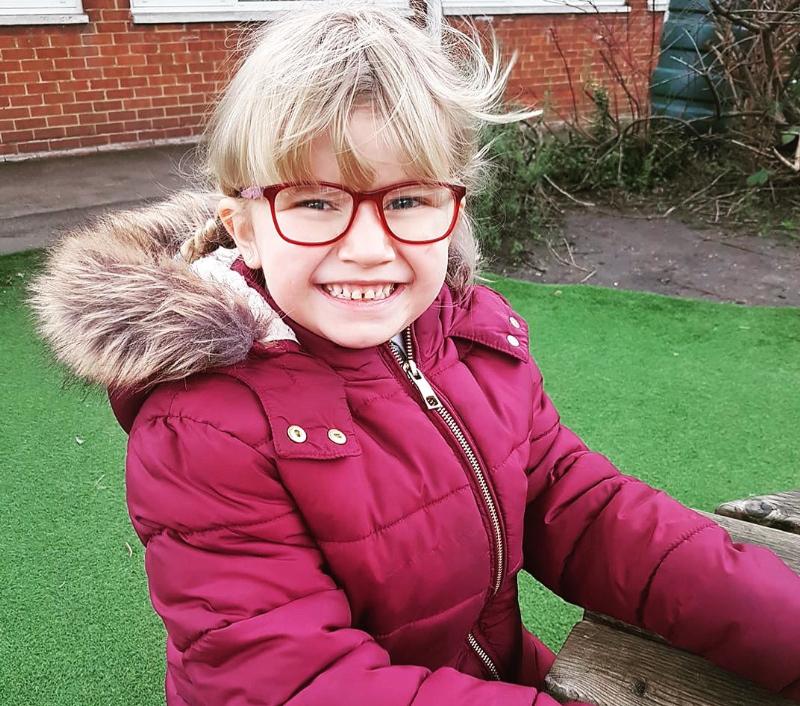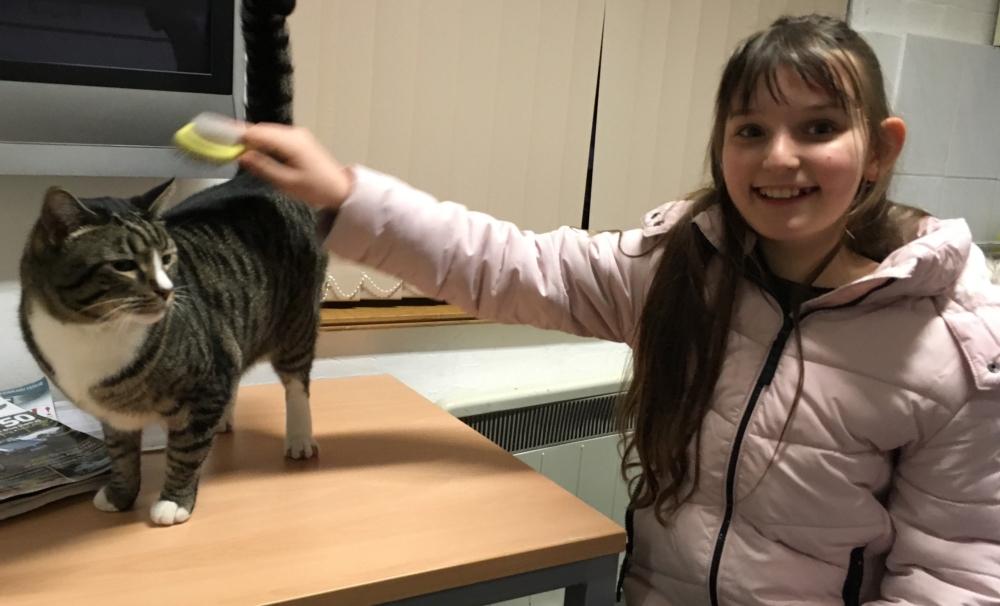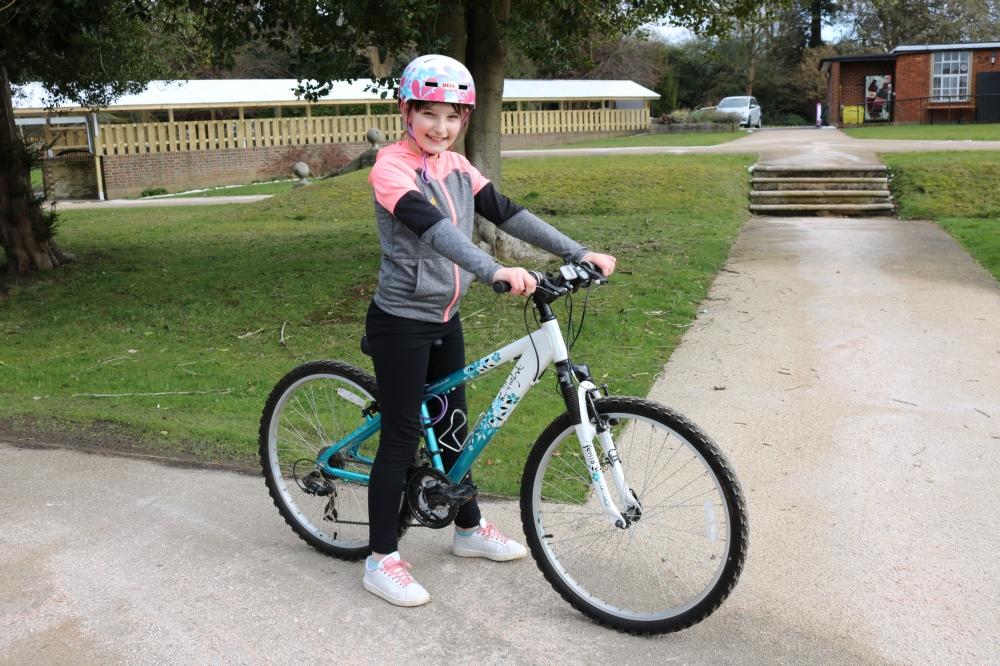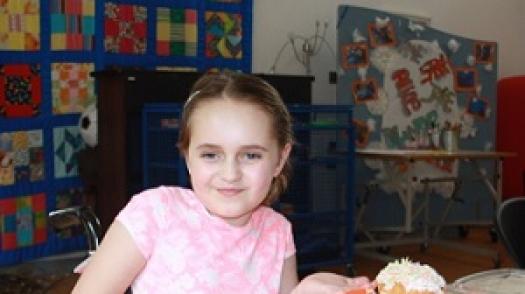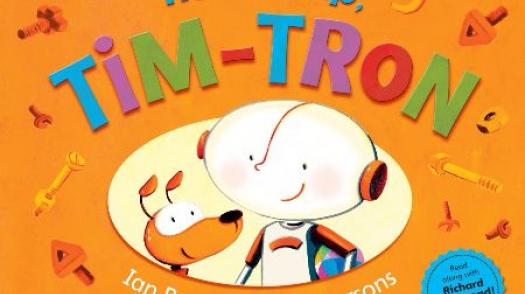Published: March 2020. Date of brain injury: July 2017 (aged 10 years).
In July 2017, while on holiday in France, 10-year-old Madison and her family were involved in a terrible car accident. Mum Georgette’s partner died a week after the accident of a severe brain injury, and Madison, her sister Naomi and Georgette were all seriously injured.
While Naomi and Georgette had bruising and broken bones, Madison had hit her head, acquiring a severe traumatic brain injury and it was uncertain whether she would make it. Madison had to be intubated and ventilated and was in a coma for four weeks.
Still in shock after losing her partner, and praying that her daughter would pull through, Georgette stayed at Madison’s bedside, refusing to give up on her.
“I talked to her about the things she liked and sang songs that I thought Madison might recognise,” explained Georgette. She continued to sing to Madison and after weeks of no response, something magical happened.
“I was brushing Madison’s forehead and singing Twinkle, Twinkle Little Star, a lullaby that I used to sing to her as a baby, when Madison’s lips moved as though she was trying to sing along. My heart jumped. I could see it. It was so subtle, but I knew she was still in there. I knew she was still with us.” As Madison woke from the coma, doctors and nurses tried to establish the extent of her brain injury and whether she would be able to relearn the skills she had lost.
Rehabilitation at The Children’s Trust
Four months after the accident, once she was medically stable, Madison was transferred back to the UK, to The Children’s Trust in Surrey for a specialist rehabilitation programme.
Madison had made good progress and was able to communicate verbally, but she was very traumatised and had significant issues with her short-term memory, fatigue and a tremor in her left arm and leg making it difficult to walk and feed herself.
Madison’s rehabilitation included speech and language therapy, physiotherapy and occupational therapy to help her mobility, confidence, memory and fatigue. Both Georgette and Naomi stayed onsite with Madison, affectionately referring to the family as the three musketeers, tribute to how involved and supportive Madison’s family were to her recovery.
Once Madison was showing signs of understanding and processing information, Georgette had to tell her that her partner didn’t make it, knowing that Madison would be devastated. “It was heartbreaking,” said Georgette. “I was so worried that it would set her back or that she would give up completely. But she was able to get support from the psychology team on site, we both were, which helped her to open up about it.”
While progressing with her rehab, it was clear that Madison was particularly motivated by music, and it became a powerful tool in helping her to overcome her tremor and improve her concentration. Dr Jonathan Pool, Music Therapist at The Children’s Trust, explained: “Madison had an ambition to learn how to play the piano, which was a great motivator. We structured exercises for her using the keyboard scale and five notes. This also utilised her concentration skills and memory.
“During our first music therapy sessions, Madison could not control the tremor in her left arm and hand and had to use her other hand to control its movement. But with regular 30-minute music therapy sessions, we started to see improvements. Not only physically, with the use of her arm and hand, but also in her alertness and concentration, which helped with education sessions. By the time her intensive therapy had ended, Madison’s tremor was very controlled and she was able to play the notes without holding her arm.”
Returning home and back to school
The family moved back home in July 2018, and Madison was able to return to her mainstream school and even ride her bike again.
“I never thought the day would come,” explained Georgette. “It had been a very tough year, and we were still all coming to terms with everything. I’m still so proud of Madison and how far she has come. She is a fighter! And it’s thanks to the help of The Children’s Trust that we made it this far.”
Madison continued to progress at home with help from her mum and sister. In 2019, Madison was moving onto secondary school, and the family got in touch with the Brain Injury Community Service (BICS) team for additional support during this key stage in her education.
The BICS team was able to support Madison both at home, including brain injury education sessions for the immediate family, and in her school environment by advising and liaising with the network of people there to support Madison.
The Children’s Trust’s Highly Specialist Speech & Language Therapist Isobel Hatfield explained: “Madison demonstrated increased understanding of her brain injury, and more of a willingness to accept support. Initially dismissive, she came to understand how people like her teaching assistant could help. She now independently requests support, accesses the quiet room, and is more willing to tell friends when she needs help.”
This support also helped Madison to be confident enough to present information to her peers about what had happened to her. Georgette said: “The presentation helped her class understand why Madison has a tremor and struggles with memory, but it was incredibly beneficial for Madison as well to come to terms with what had happened.” Madison is now part of the BICS’ long-term register, which is designed to monitor the needs of the young people at key stages of development and offer support if new needs arise.
